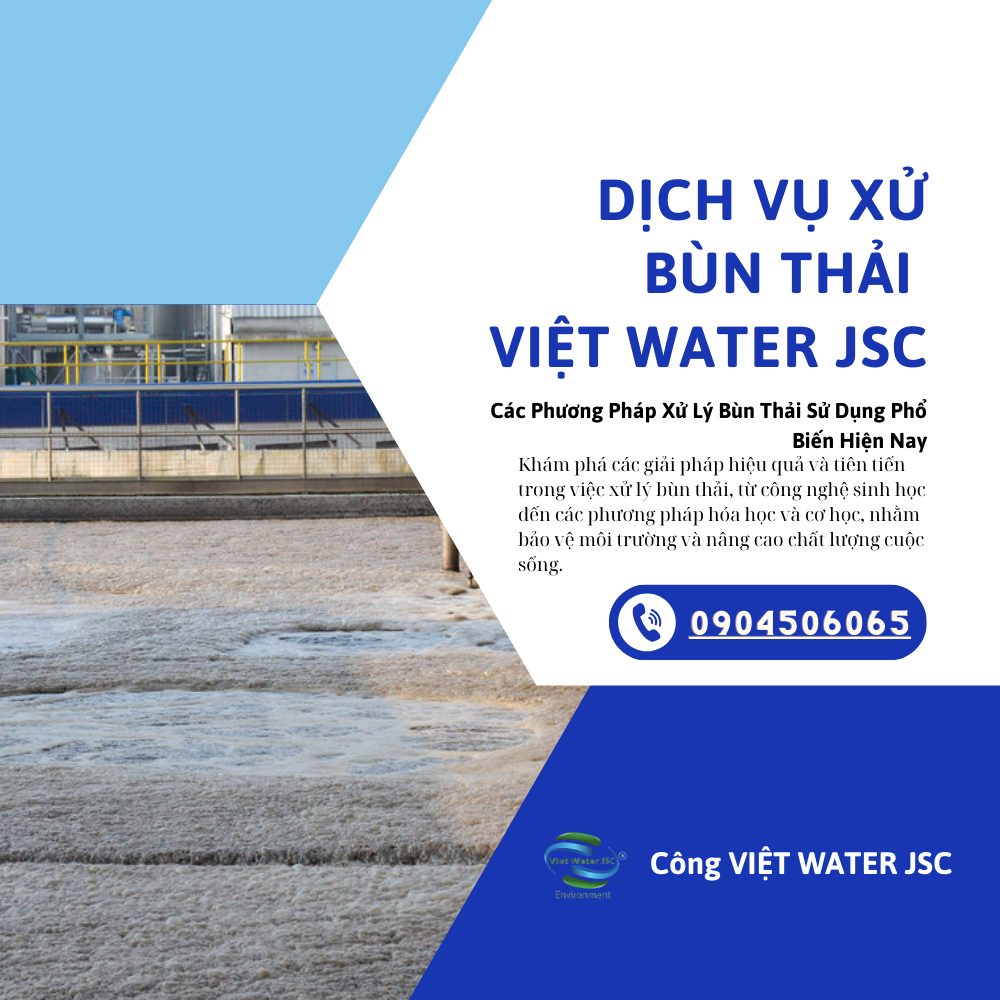Functional Food Production Wastewater Treatment
14 Nov, 2025VIET WATER provides complete wastewater treatment solutions for functional food manufacturing plants...
Sludge is a type of waste generated from wastewater treatment processes and industrial production. The process of treating wastewater not only produces clean water but also leaves behind sludge containing organic matter, microorganisms, heavy metals, and chemical compounds. Sludge treatment is necessary to remove these pollutants, ensuring environmental safety and human health. Different sludge treatment methods are applied depending on the characteristics and origin of the sludge.

There are various common sludge treatment methods used today, each with its own advantages and disadvantages. Below are some of the main sludge treatment methods:
Gravity thickening is one of the traditional methods widely used in sludge treatment. This process involves using thickening tanks to separate water from the sludge through pressure.
Advantages:
Disadvantages:
This method is often applied in industrial and urban wastewater treatment plants. However, with the development of technology, this method is gradually being replaced by more modern technologies.
Sludge drying beds are one of the oldest methods, using wind and sunlight to dry the sludge.
Advantages:
Disadvantages:
This method is suitable for areas with large spaces and dry weather. However, it is not effective in humid or rainy conditions.
Anaerobic and aerobic digestion are methods that use microorganisms to decompose organic matter in the sludge.
Anaerobic digestion:
Aerobic digestion:
Advantages:
Disadvantages:
Both methods are often applied in large-scale wastewater treatment plants that require high sludge treatment standards.
The plate and frame filter press is a mechanical method that uses pressure to press sludge between filter plates to separate water from the sludge.
Advantages:
Disadvantages:
This method is highly effective and widely used in industries with large amounts of sludge that need quick and efficient treatment.
In the context of increasing sludge treatment demand, choosing a reliable service provider is extremely important. Viet Water JSC is one of the leading companies in this field in Vietnam.
Reasons to choose Viet Water:
Contact Information:
Viet Water not only provides effective sludge treatment solutions but also offers consultation and support throughout the system operation process. Viet Water’s reputation and professionalism have been affirmed through numerous projects across the country.
Sludge treatment is an important and necessary process for protecting the environment and human health. Common sludge treatment methods such as gravity thickening, sludge drying beds, anaerobic and aerobic digestion, and plate and frame filter press each have their own advantages and disadvantages. The choice of appropriate method depends on the specific conditions of each project.
Viet Water JSC, with its experience and reputation in sludge treatment, is the top choice for businesses and organizations needing sludge treatment in Vietnam. With advanced technological solutions and an experienced team of experts, Viet Water is committed to delivering the highest treatment efficiency and customer satisfaction.